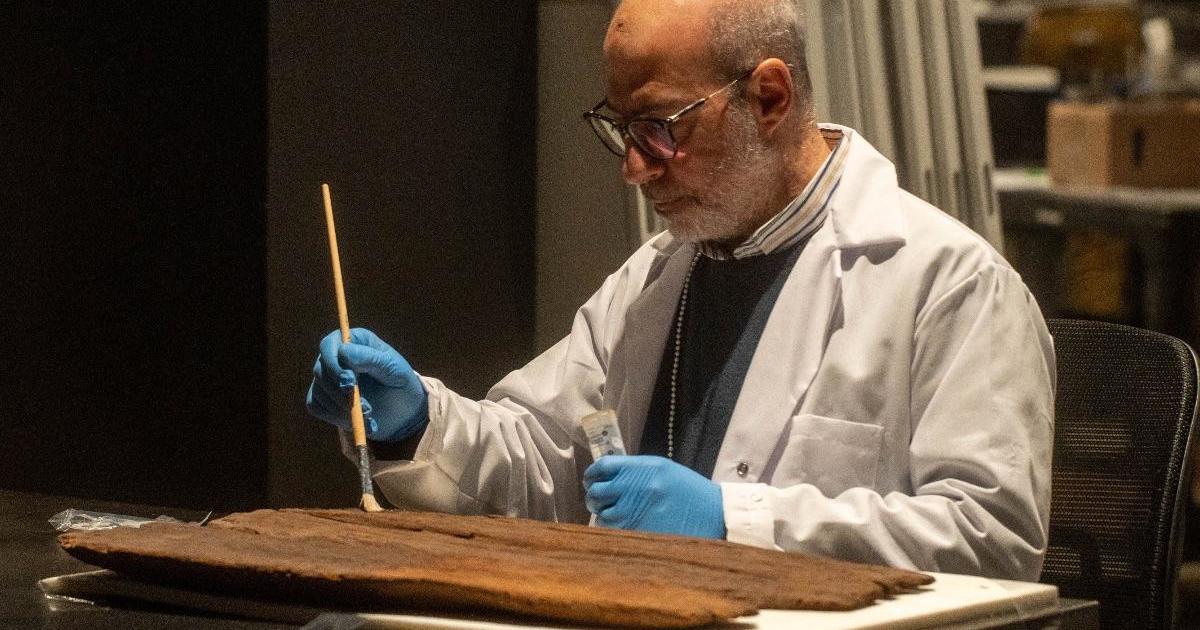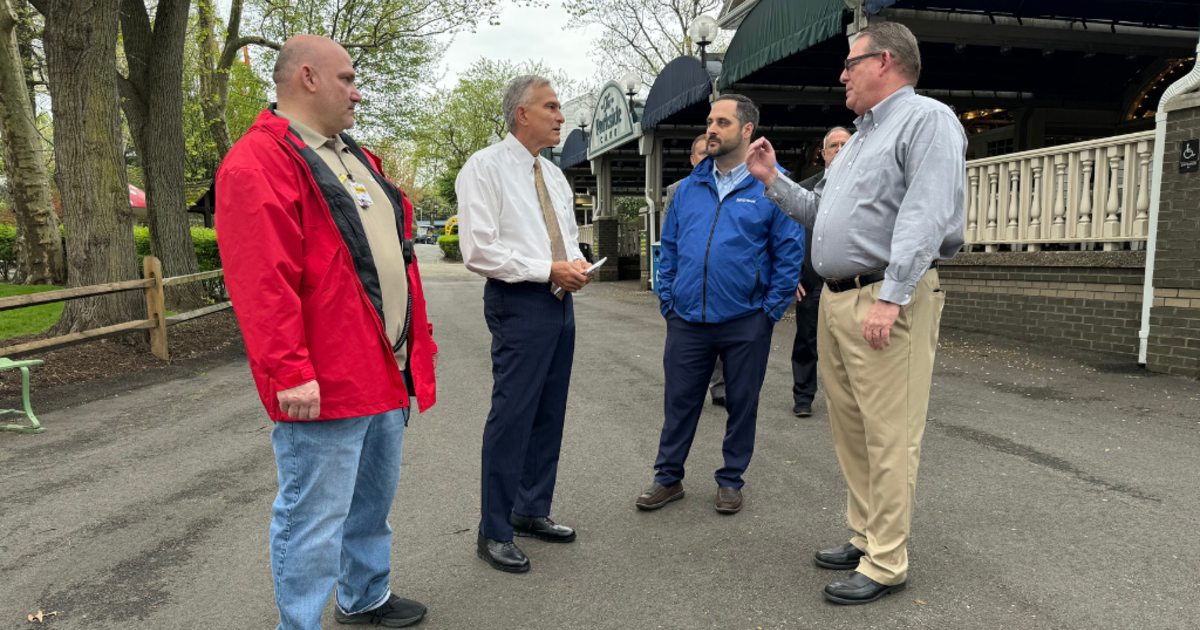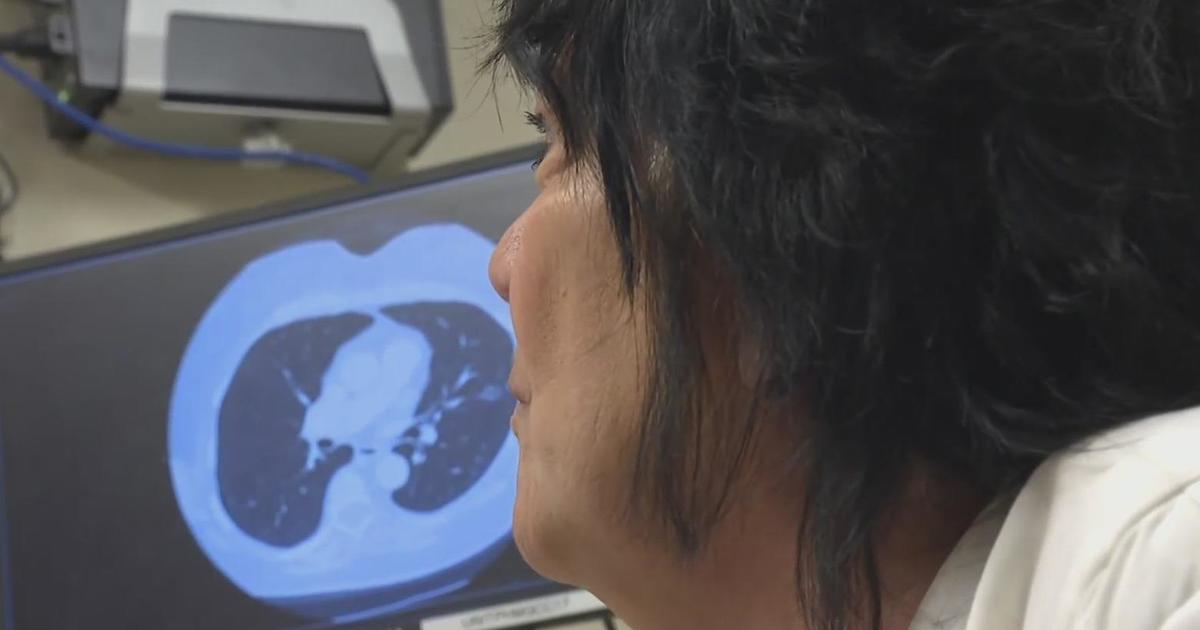Carnegie Mellon University Files Brief Standing With Harvard, MIT To Block ICE Rule On International Students
PITTSBURGH (AP/KDKA) -- Carnegie Mellon University is joining other colleges and universities in pushing back against the Trump administration's decision to make international students leave the country if they plan on taking classes entirely online this fall.
Harvard University and the Massachusetts Institute of Technology (MIT) have filed a lawsuit to try to block it, and others are promising to work with students to keep them on campus.
Carnegie Mellon University said Thursday they are filing an amicus brief in Havard and MIT's lawsuit.
CMU says in their press release: "While we considered filing an independent lawsuit, we have been advised that providing our full and complete support to the lawsuit already underway is the most effective means of assuring that these issues are fairly and quickly heard by a court, and the best option for a broad solution."
Other actions being considered by CMU include exploring other legal and policy options, talking to Congressional representatives, sending a letter to Department of Homeland Security and working together to make in-person course options are available for the international student population.
CMU's President Farnam Jahanian says in the news release, "To the members of our international campus community, without hesitation and with heartfelt affirmation, let me restate our commitment to you. We value you and we will always continue to welcome and support you in pursuing your ambitions at CMU."
- To read the entire letter to the university community, visit this link.
NEW: We are filing an amicus brief in the lawsuit that Harvard and MIT brought against the Department of Homeland Security and ICE on Tuesday. More from President Jahanian on these and other actions we're taking to advocate for our international students. https://t.co/lRJOXFt7QL pic.twitter.com/NNOtXVazOB
— Carnegie Mellon (@CarnegieMellon) July 9, 2020
The University of Pittsburgh is also taking a stand against the policy, releasing a statement on Tuesday.
"Yesterday's federal policy change requiring international students to take in-person classes in the midst of a pandemic to keep their visa status is misguided, unfair, harmful to higher education across the United States, and damaging to both regional and national economies."
Yesterday's federal policy change requiring international students to take in-person classes in the midst of a pandemic to keep their visa status is misguided, unfair, harmful to higher education across the United States, and damaging to both regional and national economies. pic.twitter.com/PrcbfwW9Ts
— University of Pittsburgh (@PittTweet) July 7, 2020
U.S. Immigration and Customs Enforcement notified colleges Monday that international students will be forced to leave the U.S. or transfer to another college if their schools operate entirely online this fall. New visas will not be issued to students at those schools, and others at universities offering a mix of online and in-person classes will be barred from taking all of their classes online.
The guidance says international students won't be exempt even if an outbreak forces their schools online during the fall term.
In a statement, the U.S. State Department said that international students are welcome in the U.S., but the policy "provides greater flexibility for nonimmigrant students to continue their education in the United States, while also allowing for proper social distancing on open and operating campuses across America."
The guidance was released the same day Harvard announced it would be keeping its classes online this fall. Harvard says the directive would prevent many of Harvard's 5,000 international students from remaining in the U.S.
Harvard President Lawrence Bacow said the order came without notice and that its "cruelty" was surpassed only by its "recklessness."
"It appears that it was designed purposefully to place pressure on colleges and universities to open their on-campus classrooms for in-person instruction this fall, without regard to concerns for the health and safety of students, instructors, and others," Bacow said in a statement Wednesday. "This comes at a time when the United States has been setting daily records for the number of new infections, with more than 300,000 new cases reported since July 1."
Universities across the U.S. say the more than 1 million international students have an important place in their communities. Many schools have also come to depend on revenue from international students, who typically pay higher tuition rates.
It creates an urgent dilemma for thousands of international students who became stranded in the U.S. last spring after the coronavirus forced their schools to move online. Those attending schools that are staying online must "depart the country or take other measures, such as transferring to a school with in-person instruction," according to the guidance.
"They may have just re-signed leases on apartments ... Our university starts in six weeks or seven weeks. They have been planning to be here, they have already spent money so it's really devastating," said University of Southern California lecturer Melanie Johnson.
The university last week reversed course on a plan to bring students to campus, saying classes will be hosted primarily or exclusively online. Georgetown University in Washington, D.C., and Rutgers in New Jersey this week made similar announcements amid surging COVID-19 cases.
Johnson worries that even students who start off on campus will be prevented by travel restrictions from going home if a surge forces classes online mid-semester.
"What if a student like that, who for no fault of their own, finds themselves here without their classes and ends up in a detention center or deported?" she said.
Professors fielded messages from frantic students seeking assurances that at least some of their courses would be face-to-face.
"They are, of course, all concerned," said University of Iowa Associate Professor Jan Wessel. "I am on board with anything we can do to circumnavigate these circumstances, and I'm willing to do any in-person arrangement if it helps a student."
But Wessel, who runs the university's cognitive neurology lab, said it was more important to take a stand against the policy "and say politics should not use our students as a poker chip in whatever they are trying to do." He said he would suspend his teaching if any of his students was forced out.
At Brown University, President Christina Paxson issued a statement supporting the Harvard and MIT lawsuit and said she was working with peers to find other ways to oppose the new policy.
The lawsuit, filed in Boston's federal court, seeks to prevent federal immigration authorities from enforcing the rule. The universities contend that the directive violates the Administrative Procedures Act because officials failed to offer a reasonable basis justifying the policy and because the public was not given notice to comment on it.
The White House's press secretary on Wednesday sidestepped a question about whether it was designed to pressure colleges to reopen their campuses, saying the policy "speaks for itself."
"You don't get a visa for taking online classes from, let's say, University of Phoenix, so why would you if you were just taking online classes generally?" Kayleigh McEnany said at a press briefing.
Paxson called the rule "nothing short of cruel" and said she would work with faculty to minimize the chance that students would have to leave the country if the Rhode Island university had to alter its plans for a blend of classes.
New York University President Andrew Hamilton also promised to work with international students to keep them in the U.S., calling the rule "needlessly rigid."
"If there were a moment for flexibility in delivering education, this would be it," he said. "Both on our own and in association with other universities, NYU will be reaching out to federal officials urging them to revoke or modify this rule."
An online petition in favor of letting international students stay if classes were online had drawn more than 220,000 signatures by Wednesday.
Pittsburgh Mayor Bill Peduto has also released a statement on the issue, saying:
"As we grapple with a global pandemic, the decision to modify federal policies to require international students to take-in person classes to keep their visa status is misguided and callous. These policy changes, rather than improving our national COVID-19 response, would be detrimental to public health, our institutions of higher learning, our economy, and our communities. These newly announced policies represent the continued efforts to chip away at duration of status by the Trump Administration, efforts which hinder the ability of the United States to recruit valuable international talent and further our economy. More importantly, these changes to SEVP policies irresponsibly puts the well-being of our international students in severe jeopardy.
"Here in Pittsburgh, our international students not only help drive the academic and research excellence of our institutions of higher learning but are critical contributors to our regional economy and our community infrastructure. The story of Pittsburgh's revitalization lies not only in bringing young people to learn at our world-class institutions, but in encouraging young minds to invest in Pittsburgh and call it home. The economic benefit of international students on our regional economy is undeniable. In our region, one job is created for every two international students enrolled in our colleges and universities. Supporting international students is critical to the well-being of Pittsburgh, which is why our Welcoming Pittsburgh Plan is committed to ensuring access to our exceptional educational resources and promoting international learning exchanges. The contributions of our international students will be critical to a robust economic recovery in the wake of the COVID- 19 pandemic.
"Beyond their economic contributions, our international students are a vital part of the fabric of our communities. They volunteer their time to support neighbors in need. They lend their voices to movements for justice. They drive forward research and innovation. Pittsburgh is fundamentally shaped by these students and they make us better every day.
"Colleges and universities should have the autonomy to make decisions about reopening based on independent assessments of capacity and risk, without coercion by arbitrary governmental policy. International students should not have to choose between leaving their new homes and prioritizing their health and safety. I stand firmly committed to working to preserve the ability of our international students to remain in Pittsburgh while pursuing their education."
(TM and © Copyright 2020 CBS Broadcasting Inc. All Rights Reserved. This material may not be published, broadcast, rewritten, or redistributed. The Associated Press contributed to this report.)



